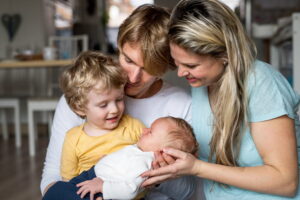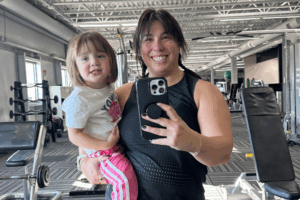The grief bubbles up unbidden. I never know when or where it will surface, but inevitably it comes when I least want it. My mom contracted COVID-19 six months ago. She nearly died of complications from the virus. The anticipatory grief I experienced was different from the residual grief I feel now — grief over the many losses that came as a result of Mom’s sudden change in health.
As a hospital chaplain, I regularly interact with patients, family members, and staff who are experiencing dying, death, and grief. The process of grieving often strips away the surface layers of a person’s life, revealing new depth and meaning, as well as flaws. And most people don’t like that last bit.
Giving Ourselves Grace
We struggle with imperfection, just like we struggle with loss and injustice and the profound sense of “missing” that grief brings. I think the holidays often highlight those feelings. We want to feel a thrill of hope and joyful anticipation of good to come. Instead, we might be wondering if we are biologically related to the Grinch. The simple answer? No, we are just grieving.
I have found it helpful to be honest with myself about loss this year. Instead of “shoulding” on myself — thinking I should feel this or that emotion, then working to replace what I really feel with said emotion — I take a step back from the emotion. I name it for what it is and then ask myself, “What is this connected to in your life?” Often, the source was a memory that needed to be acknowledged before I could accept the loss and let go of the grief.
Experiencing New Joy
Letting go of grief doesn’t mean getting over the loss. Rather, thinking about the loss no longer causes pain. There is now room for new experiences and the making of happy memories even while remembering the past. Through the years, people have shared the following strategies that have helped them balance the two:
- Remember and acknowledge your loved one in meaningful ways.
- Take good care of yourself by eating healthy, drinking plenty of water, getting moderate exercise and choosing activities that nourish your soul.
- Limit social gatherings to what brings you joy and helps lift your spirits.
- Limit the extraneous stuff — decorations, cards, gifts, shopping — and delegate tasks that seem overwhelming or too emotional. Family and friends are often eager to help with these things.
- Start a new tradition or new variation on an old tradition. For instance, if you always opened presents after church on Christmas Eve, try having a family brunch and opening presents on Christmas morning.
Connecting with Others
Every person’s experience of grief is different. Sometimes, it can feel as though grief has isolated us from the support of our family, friends or faith community. If you or someone you care about is struggling with grief and loss, resources are available to help you reconnect. Please reach out.
Grief and Loss Resources
Here are a few resources you may want to consider:
- Bryan Counseling Center
- Mourning Hope
- Your church, synagogue, mosque, or other support networks

Trisha Wiscombe
Chaplain, Bryan Pastoral Care








